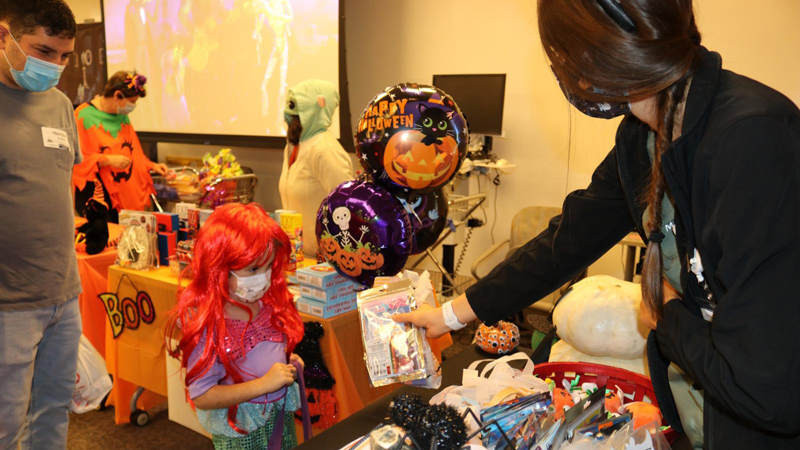The Music Therapy Program and Cherese Mari Laulhere Child Life Program at MemorialCare Miller Children’s & Women’s Hospital Long Beach has greatly benefitted thanks to generous annual donations from Liset and Alex Meruelo of the Meruelo Group. The couple made their first donation in 2016 to help expand the Music Therapy Program, and have donated each year since – helping bring $100,000 to the program over the last seven years.
The Meruelo Group has also contributed through their Bear Hugs Toy Drive, delivering hundreds of stuffed bears to patients at their bedside to help them feel supported and loved. The Meruelo Group has been generously donating stuffed bears for 27 years and continue to donate each year.
Over the years, the Music Therapy Program has been able to expand its musical equipment to help soothe hospitalized children and their families with the healing power of music. Through the program, a music therapist facilitates bedside music therapy and group music therapy sessions. Thanks to the generous donations from the Meruelo Group, music therapists are able to buy microphones, instruments, new computers, laptops, and updated software for recording capabilities.
“Donations like ones from the Meruelo Group allow us to help our patients and families,” says Laurel Terreri, MA, MT-BC, music therapist, Cherese Mari Laulhere Child Life Program. “Enhancing our program with new technology gives patients the chance to record original songs, play different instruments, or record a patient’s heartbeat for those nearing end of life for the parents to keep.” A vital part of the Music Therapy Program is to use the power of music to brighten the lives of patients and improve creativity, communication, and confidence, while also providing a distraction for patients and families who may be experiencing anxiety due to treatments.
“We tailor the program individually to meet each patient’s needs and based on what they wish to do, such as getting to choose which instrument they want to play,” says Terreri. “We always hope that when we leave their room, their faces look a little brighter.”



